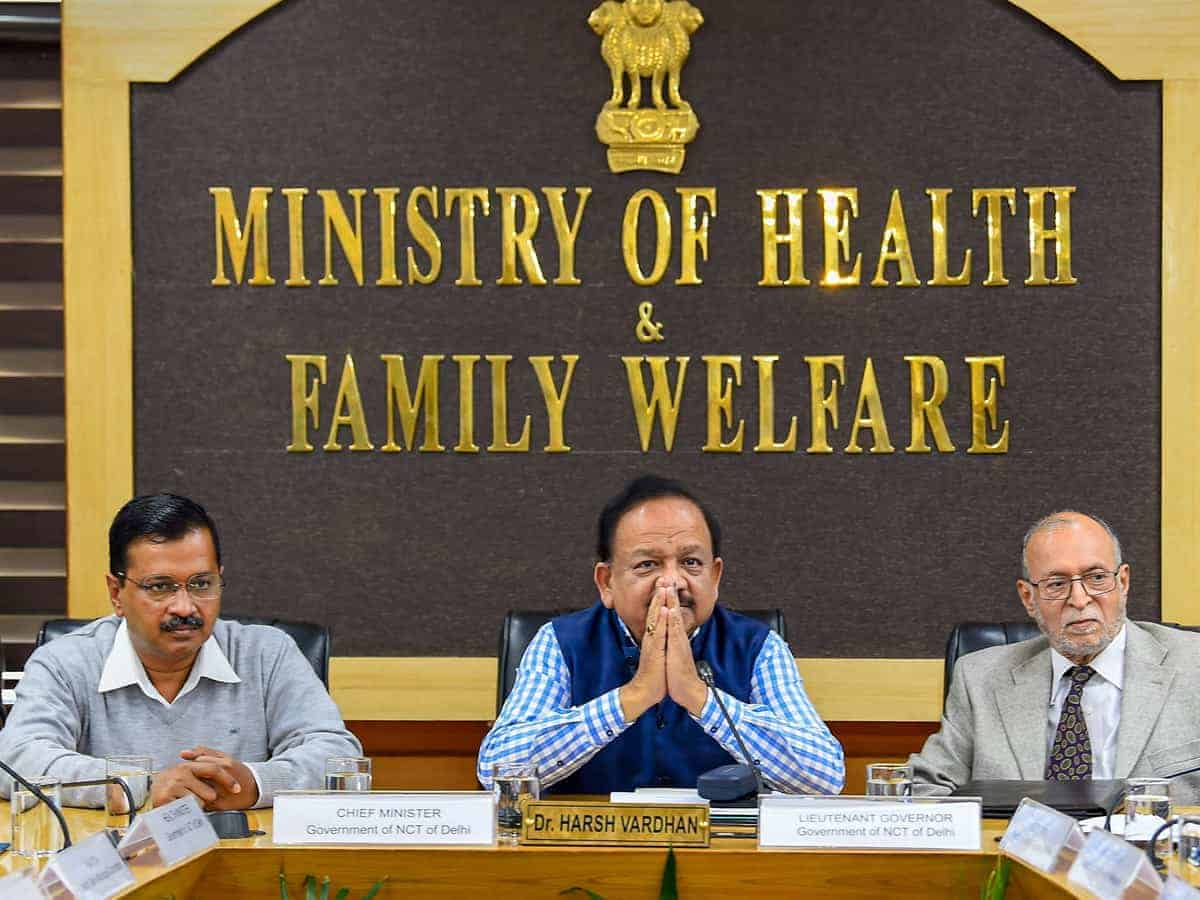New Delhi: Blaming people in metros like Delhi and Mumbai for not following the lockdown guidelines properly, union health minister Dr Harsh Vardhan said that’s one of the main reasons these cities are not performing well in controlling the spread of coronavirus as compared to other cities in the country.
“I have a feeling that people in these cities have not followed lockdown principles quite adequately,” he told CNN-News18 in an interview after being asked about why major urban centres account for a lion’s share of India’s cases. “Rural (India) has behaved much more responsibly than urban India,” he added.
Mumbai alone has reported more than 20 per cent of India’s overall cases. The overall case count in the financial capital stands at 8,613, while the death toll is 343. Delhi has so far reported 4,549 confirmed cases, after a record single-day hike of 427 cases on Sunday.
The minister, however, admitted that some of these big cities had also borne the maximum brunt of international travellers and that could have contributed to more cases there.
“They also have huge slums where it’s not practically possible to implement the guidelines of social distancing and lockdown principles in a perfect manner,” he said. He praised the response to the crisis in rural areas, and said he has a “feeling that these migrant labourers are not so much a cause of concern for Covid-19 because they probably never got in contact with those who got the disease from foreign lands because of the socio-economic status.”
The explanation for less cases in villages or migrant workers not being carriers of the virus does not take into account the variance in testing rates in urban centres and rural areas. India’s overall testing rate, at around 694 per million, too, is one of the lowest in the world and the testing figures vary by state.
Dr Harsh Vardhan pointed out that India has tested over a million people now and the number of positive cases is far lower than other coronavirus-hit countries at the same stage. The government had said on Sunday that India reported roughly 40,000 confirmed cases after a million tests, as compared to 73,000 in Germany, 1.6 lakh in USA and 2 lakh in Spain.
“We have plans to test 1 lakh people per day. Anybody with symptoms must be tested. We are testing in a judicious manner and the results speak for themselves. This is a well-crafted strategy,” he said. The minister further said that government data shows that over 11,000 patients have recovered, and “a majority are recovering well”. He told CNN-News18 that less than 1 per cent of the patients are on ventilator, 2 per cent need oxygen supply and 2-3 per cent are in ICUs.
The main goal of his ministry, he said, is to control unwanted mortalities. “Covid-19 is infectious and spreads fast. My concern is to catch everyone with infection early and make sure they are tested. If positive, they should be shifted to a hospital,” he said. He also insisted that India is not in stage-3 of transmission of the virus, or no community transmission has taken place so far. Going by the definition of the World Health Organisation, he said the government has saved the country from going into community transmission.
“In India, we have checked a number of places at a number of occasions, random samplings have also been done and we couldn’t find a significant number of people who got the disease whose contact tracing we couldn’t do successfully. Again reiterating, we have saved the country from going into stage 3 of transmission.
The minister also weighed in on the issue of treatment options and said the use of experimental anti-viral drug Remdesivir, which has been called the biggest hope against Covid-19, is being discussed at highest levels of the government.
“Scientists at ICMR and CSIR are also deliberating upon this issue. Right now we are in the position to participate in the WHO solidarity trial. We have been given some 1,000 odd doses by the WHO. We’ll be able to use them in clinical trials on some patients in some states in India,” he said.

